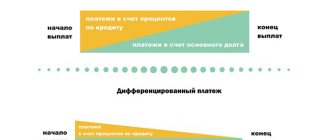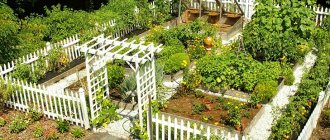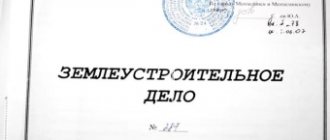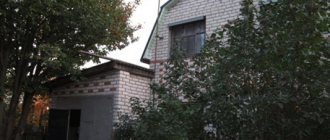DNT (dacha non-profit partnership) is no longer included in the classifier, which indicates the permitted types of land use. Now there are only horticultural and vegetable gardening non-profit partnerships (SNT and ONT). However, DNTs can still operate under the old name, in accordance with Federal Law No. 217-FZ “On the conduct of gardening and horticulture by citizens...”.
There is no deadline for renaming DNT. Participants, as before, can sell the land and use it in accordance with the charter in force in the area, defend their rights in court, and leave the partnership.
Advantages
Purchasing a plot of land in DNT has its advantages:
- Buying land in DNT for permanent residence can be a profitable investment, since it is cheaper than in the city;
- At the same time, the plots themselves are cheaper due to their location on less fertile soils;
- There is an opportunity to purchase several plots located next to each other;
- The organization represents the interests of all participants, so issues do not need to be resolved independently.
How it all began
During the existence of the Union, large-scale production organizations built entire dacha cooperatives for workers. They were provided to people for use for a specified period, and sometimes citizens were given the opportunity to privatize the plot and the object located on it.
After the collapse of the USSR, commercial times came when cooperatives were resold and rented out to anyone who wanted to use the land. Many people liked this procedure, since anyone could build a house and not be in a particular hurry with its documentation. However, over time, one still had to register one’s rights to the plot and the house built on it. It was then that various partnerships appeared.
DNT, like DNP (dacha non-profit partnership), is one of them. Next, let's take a closer look at what it is.
Dear readers!
Our articles talk about typical ways to resolve legal issues, but each case is unique. If you want to find out how to solve your specific problem, please contact the online consultant form on the right →
It's fast and free!
Or call us by phone (24/7):
If you want to find out how to solve your particular problem, call us by phone. It's fast and free!
+7 Moscow,
Moscow region
+7 Saint Petersburg,
Leningrad region
+7 Regions
(free call for all regions of Russia)
Flaws
Using a site as a place of permanent residence also has disadvantages:
- Often, DNT lands are located far from infrastructure and it takes a long time to get to schools, shops, cultural and healthcare institutions;
- Communications will need to be connected to the building on the site, which is often more expensive than the site itself, and is also accompanied by administrative obstacles;
- It is impossible to take out a loan secured by a house or land in DNT;
- It is possible to register in a house built on land in the DNT, but in practice there are often difficulties with obtaining registration;
- Joint resolution of issues can also be a disadvantage in case of disagreements with neighbors;
- The need to pay membership fees or pay for the use of the partnership’s infrastructure.
SNT: what is it
SNT stands for garden non-profit partnership
. Lands with this status are located outside populated areas; initially such areas were intended for agriculture. The owner of the site becomes a member of the partnership, so he must regularly pay membership fees and can take part in meetings.
Advantages of SNT lands
Compared to individual housing construction lands, plots in SNT are much cheaper
. They are located, as a rule, in rural areas - that is, in areas with good ecology.
Disadvantages of SNT
It is not prohibited to build residential buildings on plots in SNT, but they will be considered country houses
, even if someone lives in them all year round. This is justified by the status of such a site.
Other disadvantages:
- plot owners provide all necessary communications at their own expense;
- It is difficult to register in a built house;
- a plot in SNT, as a rule, has an area of no more than 15 acres.
Another important disadvantage is that banks are reluctant to take land in SNT as collateral
– this complicates the process of acquiring it if there are no savings.
Form of government
In organizations of this type, a chairman and a board are elected - the management team of the dacha cooperative. The owners of the plots who make contributions are considered members of the partnership.
Decisions on various issues are made by cooperative members at general meetings, which are recorded in the minutes. DNT as a legal entity has financial resources generated from entrance and membership fees. Property can be considered either to belong to the dacha partnership or to be the joint property of the participants.
How does DNT work?
Dacha non-profit partnerships, in essence, are dacha cooperatives, that is, organizations created by land owners to resolve various issues. DNT has a chairman and a board, and decisions are made by the general meeting of partnership participants.
Owners of plots included in the DNT pay entrance and membership fees, from which a fund of funds belonging to the DNT as a legal entity is formed. Property that is acquired on behalf of DNT may also belong to it as a legal entity, or be the joint property of all participants in the partnership. Such common property includes, for example, external fences and gates, fire fighting equipment, waste collection areas.
The site owned by DNT can be used as follows:
- build a permanent house on it with the opportunity to live in it, for example a house made of laminated veneer lumber;
- erect non-permanent buildings for various purposes;
- grow trees;
- cultivate crops;
- organize rest areas.
You can register at DNT
The construction of a house on the site is not mandatory (unlike the lands of the DNP - dacha non-profit partnerships - where the development of the land within three years and the construction of a residential building is a necessary condition for using the site). Moreover, you can own a plot located on the territory of the DNT, and at the same time not join a partnership and, accordingly, not pay membership fees. Instead, you will need to enter into an individual agreement with the partnership, according to which you will pay for the use of the infrastructure. If SNT collects money for some projects (for example, connecting to a gas supply or repairing roads), each owner has the right to decide for himself whether to contribute the required funds.
In the long term, buying a plot of land on DNT land can be profitable: often living on it is cheaper than paying utility bills for city housing. In addition, unlike individual housing construction, when you have to resolve all issues yourself, there is an organization that represents the interests of residents. However, at the initial stage, the costs can be significant: you will need not only to build a house, but also to carry out communications. DNT lands are not always convenient to use for permanent residence, since there are few infrastructure facilities (shops, schools, medical institutions) nearby. It is important to understand that in order to resolve many issues, you will need to find contact with your neighbors, since decisions in the DNT are made jointly.
For permanent residence it is more profitable to take land in DNT
Purpose of the land
The allotment in DNT can be used in the following ways:
- for personal farming;
- for growing fruit trees and shrubs
- for the construction of a cottage on it, including as the main residence;
- for the construction of structures for various purposes.
Building a house on DNT lands is not mandatory. Russian citizens can register for them at their place of residence. But stateless persons or foreign citizens cannot have ownership rights to such lands.
Individual housing construction plot: what is it?
IZHS stands for individual housing construction
. Areas with this status are located within populated areas - with the appropriate infrastructure. In accordance with Article 48, paragraph 3 of the Town Planning Code of the Russian Federation, a permanent residential building can be erected on a land plot with this status, the main thing is that the height should be no more than 3 floors.
Advantages of individual housing construction
The main advantage of a land plot for individual housing construction is the ability to register at the place of residence
, however, only after the construction of a residential building.
Other advantages are:
- banks are willing to issue a mortgage for the purchase of land for individual housing construction;
- in settlements with developed infrastructure there will be no problems enrolling a child in school or kindergarten;
- the owner of the house has the right to freely connect to the main communications (in practice this is quite rare);
- there is an opportunity to use all social services and privileges (if available).
In addition, when purchasing such an object, you can apply for a property deduction for personal income tax.
, but only subject to the official employment of the owner of the plot for individual housing construction.
Disadvantages of land for individual housing construction
In accordance with the legislation of the Russian Federation, each region has certain restrictions on the size of plots
for individual housing construction. And before the construction of a facility, all necessary documents (acts, projects and other papers) must be approved by the relevant government authorities.
What is prohibited on individual housing construction sites
The legislation establishes certain prohibitions regarding the use of sites with this status. Owners are prohibited from producing or selling ritual goods or organizing the processing of agricultural products (for the purpose of making a profit).
It is forbidden to build facilities for industrial or municipal use on plots for individual housing construction.
.
Housekeeping
It is permissible to own a plot of land on the territory of a dacha cooperative, but not join a partnership and not pay fees.
In this case, the individual owner of the plot can use the entire infrastructure of the partnership.
The owners of the plots and the board of the cooperative must enter into an agreement, which stipulates the order in which membership fees are made and utility bills are paid. The latter can go to the DNT cash desk or to the account of municipal organizations.
IMPORTANT! The amount of payments for a property owner who is not a member of the cooperative cannot be higher than the membership fees.
Checking documents before purchasing a plot
Having understood what DNT is, you can buy a plot. But there’s no need to rush; it’s better to double-check everything first.
You need to know the following facts:
- history of the site in order to avoid unpleasant surprises with its privatization and other necessary registration actions;
- are there any underground communications on the site, since it will not be possible to drill wells or dig a deep foundation;
- take an extract from the cadastral plan, which will indicate the clear boundaries of the acquired plot;
- whether the land belongs to the protected zone.
In order not to miss all the nuances, it is better to seek help from specialists.
Nuances of designing a summer cottage
In order to correctly prepare all documents for a land plot, you need to take into account some points:
- The plot must be registered in the cadastral register;
- All documents are drawn up in the presence of a membership book and minutes of the meeting of members of the partnership;
- You can only purchase a completed and registered allotment;
- The transfer of the plot is free of charge;
- The boundary plan must be certified by the relevant authorities.
What is the difference between DNT and DNP
DNT and DNP (dacha non-profit partnership) are very similar in form of organization. Meanwhile, they have significant differences related to the design of plots:
- A mandatory condition for using a plot in the DNT is the development of the territory within three years and the construction of a private house; there are no restrictions in the DNT;
- Common land in a partnership is owned by the organization, while land acquired through targeted contributions to the partnership is the joint property of all its participants.
At the same time, DNPs have a more advantageous location and are closer to infrastructure facilities. You can get to the plots by public transport, while DNT rent buses to transport people between the plots and the village.
How is it different from SNT
The form of government in both organizations is the same. The difference between DNT and SNT lies in the purpose of using the site. If in DNT this is, first of all, the construction of country cottages, then in SNT gardening and vegetable gardening come to the fore. Gardening partnerships are located in places with more fertile soils. This fact may affect the cadastral value of the plot, and therefore, a higher land tax is possible in SNT.
IMPORTANT! Unlike DNT, it is almost impossible to register in SNT.
It will not be possible to build a cottage for moving from the city on a plot purchased in SNT. This plot of land is suitable for people who want to engage in personal farming in the summer.
Differences between DNT and SNT and individual housing construction
The fundamental difference between a dacha partnership and a gardening partnership lies in the nature of land use. Less fertile lands are allocated for DNT, since the main purpose of the dacha is recreation. But this does not mean that you cannot grow potatoes or apples in your dacha - a vegetable garden is perfectly acceptable. In addition, not all SNTs can erect capital buildings due to the allocation of agricultural land for such partnerships.
The second important difference is simplification of questions:
- registration - it is quite possible to register at the dacha and live permanently;
- connections to communications - DNT can act as a legal entity that will deal with the issue of laying utility networks and connecting them to the networks of sales organizations.
Since the law on dacha partnerships gives the right to build a house for permanent residence, and does not oblige it to do so, restrictions on the use of land for personal purposes are lifted from the owner. Therefore, instead of a house, you can pitch a tent (which cannot be done with individual housing construction), and instead of cucumbers and apple trees, you can plant decorative loaches and create flower beds with lawns (which is impossible on SNT sites).
Another important difference is the cost of the plot. If in SNT land is quite expensive due to its fertility, then in individual housing construction it is even more expensive (after all, such lands are located in close proximity to infrastructure facilities). DNT stands between them and is the “golden mean”. That is, land here will be the cheapest if you plan to move to a private house. Land in gardening partnerships is even cheaper, but construction on such territories is prohibited.
Individual farming on DNT lands
There is a practice of conducting individual farming, which is provided for by Federal Law-66.
Typically, this type of farming is resorted to by people who, for some reason, are dissatisfied with the management in their DNT.
Types of individual gardeners:
- who recently received rights to their plots and did not have time to join the DNT;
- voluntarily left the DNT;
- excluded by the general meeting;
- those who do not enter into DNT of their own free will.
As for the rights of individual gardeners in relation to members of society, individuals can use the property of DNT in the same way, but under the terms of agreements concluded with DNT in writing.
In case of violation of the terms of the contract, residents running individual households are deprived of the right to use the property.
The amount of fees for the use of facilities for individual gardeners cannot exceed the amount of fees established for participants in the partnership.
To exit the DNT, you must submit an application, then sign an agreement that governs your future relationship.
It turns out that upon leaving the DNT, the gardener is only exempt from paying the membership fee and is deprived of the right to participate in the affairs of the community. All other payments remain.
Advantages and disadvantages
The advantage of such organizations is that all profits are distributed among the participants, taking into account labor contributions and their size. If a person contributes a lot to the cooperative, he receives the greatest benefit
When a cooperative is liquidated, property between members is often distributed along with labor contributions. It may be aimed at satisfying the requirements of creditors. Thus, all members have an incentive to work conscientiously and contribute to the cooperative's activities.
We invite you to familiarize yourself with the difference between property and privatization
It is also worth noting that all members of the cooperative have the same rights and each has a vote.
As for the disadvantages, it is worth noting the difficulty in creating such an organization. As mentioned earlier, the composition should include 15 individuals and 5 legal entities. All members must take an active role in the organization, and some may find this uninteresting and tedious.










